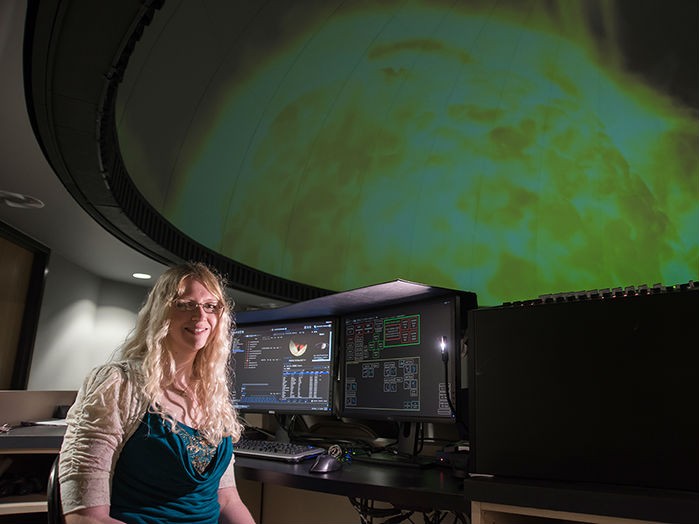On Aug. 21, a total solar eclipse will temporarily darken portions of north Georgia, and the University of North Georgia has events planned in advance to help viewers have a safe and educational experience.
"The upcoming solar eclipse is a big deal because it's such a rare phenomenon. From parts of north Georgia, you will be able to see a total solar eclipse, which is a once-in-a-lifetime opportunity," said Dr. Lesley Simanton-Coogan, director of the George E. Coleman Sr. Planetarium at UNG and a lecturer in physics. "Any given location on Earth will only be in the path of a total solar eclipse roughly every 375 years. Even partial solar eclipses are not common, so the fact that most of the U.S. will be able to see at least part of the sun covered is giving rise to the nickname the Great American Eclipse."
UNG has two events planned, a workshop for K-12 teachers and an educational event for the public the day before the eclipse – both events are free. Educators can choose to attend one of two sessions at the Coleman Planetarium on either Saturday, May 13 or Saturday, Aug. 12. In addition to a planetarium show, UNG faculty members will lead educators through eclipse-related activities that they can use in their classrooms and provide resources for safe eclipse viewing and additional astronomy information.
Seating in the planetarium is limited, so educators are encouraged to register for a workshop by visiting the eclipse program website.
The public event on Sunday, Aug. 20 is a chance for community members and UNG students to learn about the eclipse, including a short planetarium show featuring real, close-up images of the sun. There also will be talks by UNG professors on eclipse-related topics such as the science, history and culture surrounding eclipses and the sun. Weather permitting, special telescopes will be set up for safe, direct viewing of the sun. Eclipse glasses also will be given to guests to take with them and safely view the eclipse the following day.
People should attend this event on the day before the eclipse to prepare for the eclipse the next day, Simanton-Coogan said.
"The Great American Eclipse will occur on a Monday afternoon around 2:30 p.m., with the moment of totality lasting only a few minutes and only from certain parts of north Georgia, Simanton-Coogan said. "Learning about the eclipse ahead of time, especially where to go to see the total eclipse, is the best way not to miss this brief and incredibly rare opportunity. It is also important to alert people to safe viewing practices before the event, as looking at the sun while it is partially covered is still dangerous to the eyes."
From May 19 until the big event, the weekly planetarium shows at UNG will feature the film "Solar Superstorms." The free, public shows begin each Friday at 8 p.m.; for information and directions, visit the planetarium website.









